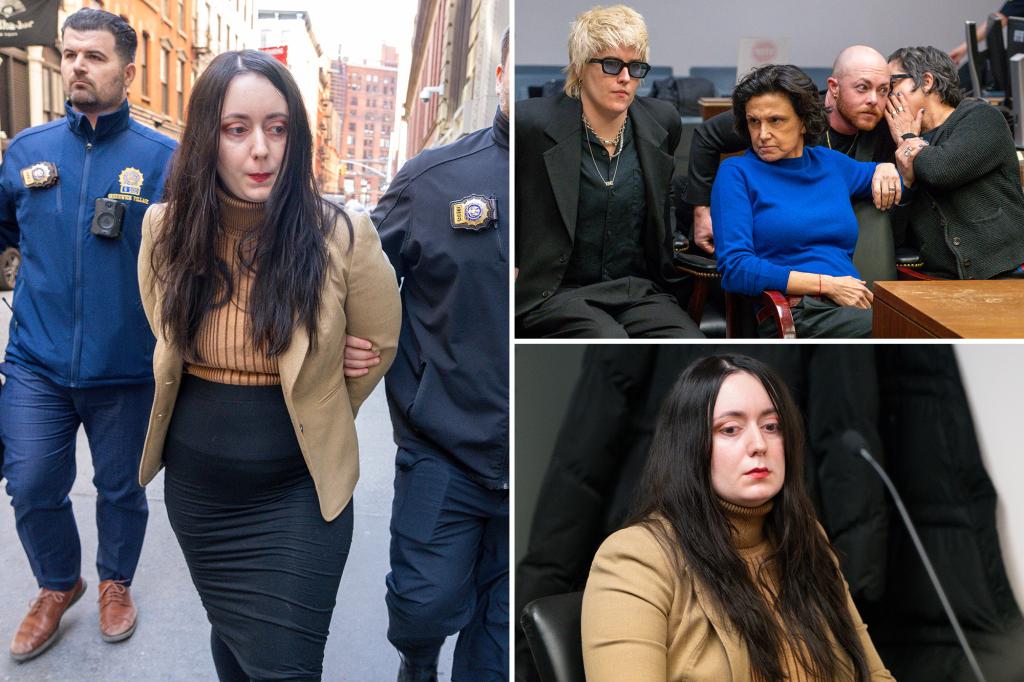Anne Marie Bompart, a self-proclaimed “woke” activist, found herself on the wrong side of the law after a court appearance concerning defamation lawsuits filed against her by two prominent lesbian bars in New York City. Her arrest followed a hearing in which her lawyer attempted to downplay a series of threats she made against the establishments and their associates as mere “ill-advised” jokes. The incident marked a dramatic escalation in a year-long saga that has seen Bompart accused of spreading false rumors about racism and violence at Henrietta Hudson and Cubbyhole, two popular lesbian bars in Manhattan.
The courtroom atmosphere was tense, with approximately twenty supporters of the bars present, observing the proceedings with palpable anxiety. The bars’ lawyer, Tom Shanahan, detailed the alarming nature of Bompart’s threats, which included threats of violence against both individuals and a pet. He argued that Bompart’s actions constituted contempt of court and warranted financial penalties and a mental health evaluation. Shanahan emphasized the growing fear within the community, asserting that Bompart posed a danger not only to herself but also to others. He recounted an incident where Bompart allegedly violated a restraining order by standing outside Cubbyhole, causing alarm among the bar’s staff, who quickly locked the doors and took photographs.
Bompart’s defense, presented by her lawyer Gerard Lucciola, centered on the notion that her communications, punctuated with emojis and “lol,” were clearly hyperbolic and not meant to be taken seriously. He characterized the bars’ claims as “sensationalist” and “audacious,” attempting to portray Bompart as the victim of overblown reactions. Lucciola further accused the bars of being in contempt themselves, alleging that a Cubbyhole manager had sent someone to surreptitiously gather information from Bompart, an act he claimed reignited her campaign against the establishments. He dismissed the alleged restraining order violation, questioning the authenticity of the photograph presented as evidence and asserting that Bompart had been at home at the time.
The presiding judge, after hearing arguments from both sides, made a significant decision. While stopping short of holding Bompart in contempt of court at that time, the judge ordered her to undergo a 72-hour mental health evaluation. This decision underscores the seriousness with which the court viewed Bompart’s behavior, despite her lawyer’s attempts to downplay the threats as jokes. The judge also upheld the existing restraining orders protecting both bars from Bompart, further emphasizing the need to ensure their safety and security.
The arrest of Bompart on a charge of aggravated harassment immediately following the hearing adds another layer of complexity to the case. The NYPD’s involvement signifies that the authorities considered her actions to be criminal in nature, transcending the realm of civil disputes. This development elevates the stakes considerably, transforming what began as a defamation case into a potential criminal prosecution.
This case highlights the challenges of navigating freedom of speech in the digital age, particularly when online communication can easily be misinterpreted or used to escalate conflicts. Bompart’s reliance on emojis and internet slang as evidence of her alleged non-serious intent underscores the ambiguities that can arise in online communication. The legal implications of online threats, particularly those perceived as credible, are becoming increasingly significant in an interconnected world. The judge’s decision to order a mental health evaluation, coupled with the criminal charge, reflects a growing awareness of the potential link between online behavior and real-world consequences. The case involving Anne Marie Bompart and the two lesbian bars stands as a stark reminder of the potential for online interactions to escalate into real-world legal battles and the importance of responsible online communication.

